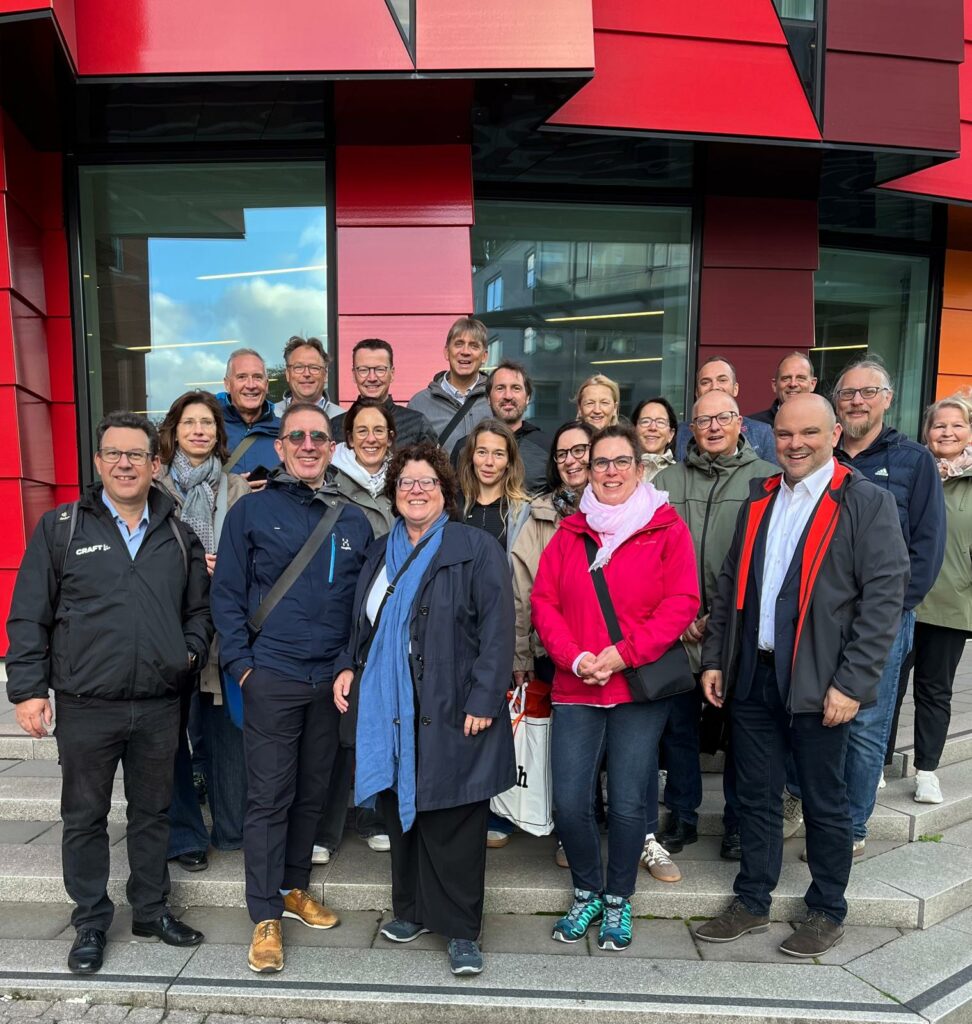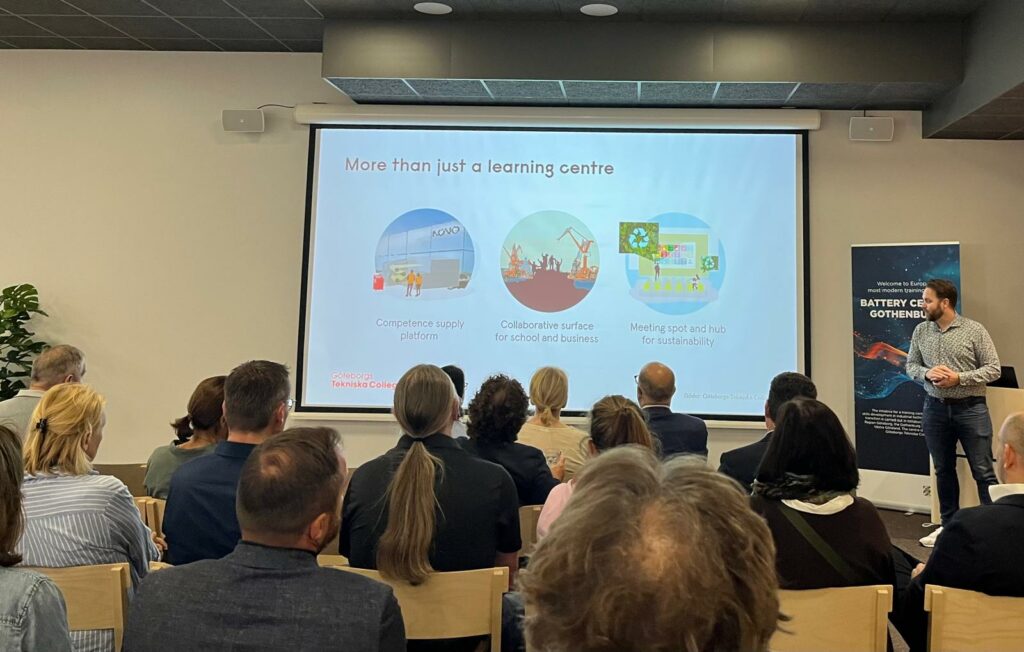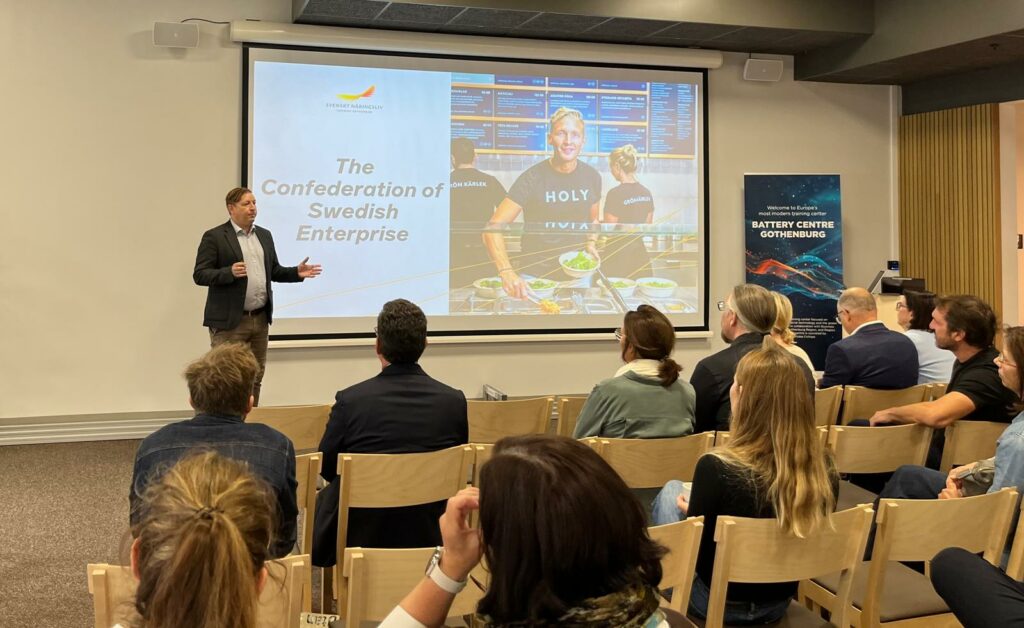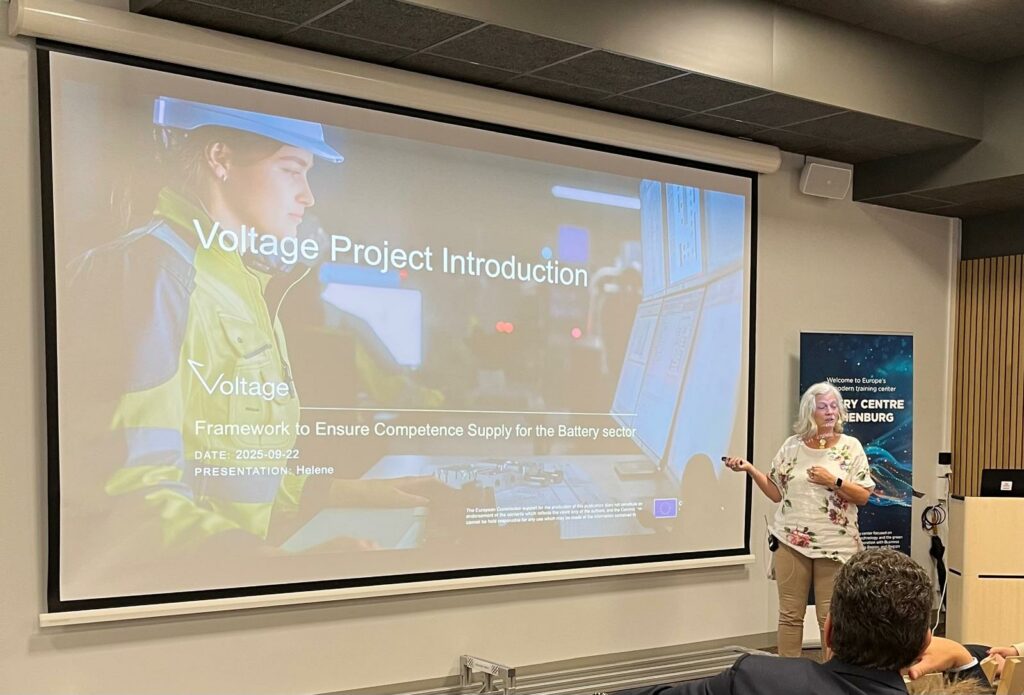Mobility exchange in Gothenburg: Baden-Württemberg stakeholders explore Sweden’s skills ecosystem
29/09/2025

A delegation of 21 participants from Baden-Württemberg travelled to Gothenburg, Västra Götaland Region (VGR), Sweden, through the Erasmus+ Key Action 1 Mobility programme. The group represented a broad spectrum of stakeholders, including the Chamber of Commerce and Industry Karlsruhe, LN WBB – Landesnetzwerk Continuing Education Counselling, insurance companies, trade unions, and several VET schools and institutions engaged in upskilling. Both regions’ organisations, Baden-Württemberg, Västra Götaland Region (VGR) and Camilla Winter AB are members of EARLALL, making the exchange a strong example of cooperation within the network. The visit offered participants a unique opportunity to learn from Sweden’s well-established competence supply ecosystem and exchange experiences on lifelong learning.
Hosted by Ms Camilla Winter (Camilla Winter AB), the programme began with an introduction to the Swedish education system, providing valuable context for the visits and discussions that followed. Participants’ strong engagement was reflected in the many questions raised throughout the sessions, underscoring the relevance of the Swedish experience for the challenges faced in Baden-Württemberg.
At the Battery Centre Gothenburg, Mr Daniel Nåfors, Operations Manager, underlined the centre’s role as more than just a learning hub. It functions as a competence supply platform, a collaborative arena for education and business, and a key player in advancing sustainability. Jointly developed by VGR, the City of Gothenburg, the Gothenburg Region, and Business Region Gothenburg, the centre serves professionals, students, teachers, and companies across the automotive, energy, and manufacturing industries, as well as adults seeking to transition into the rapidly expanding battery and electrification sector. Even children at preschool level are included, highlighting Sweden’s commitment to lifelong learning from an early age.
The group also heard from Mr Rudolf Antoni, Regional Director at the Confederation of Swedish Enterprise in Västra Götaland, who provided insights into the organisation’s work at local, regional, national, and European levels. He emphasised the importance of influencing education policy to better match labour market needs and strengthen the attractiveness of vocational and higher education. His reflections on the role and history of Sweden’s trade unions further deepened the participants’ understanding of the Swedish labour market model.



Building on this, Ms Helene Stensson, Process Manager for Skills Supply/Technical College, Gothenburg Region, and Project Manager of the Erasmus+ CoVE project Voltage, introduced Sweden’s largest collaboration platform for securing industrial skills: Teknikcollege. Acting as a quality label for technical education, the platform brings together municipalities, providers, and companies to enhance the relevance and quality of training. She also presented the Voltage project, which involves partners from Baden-Württemberg, among others. Together with Mr Antoni, she showcased the Gothenburg Region Competence Council, a strategic body uniting education, industry, trade unions, and public employment services to advance skills supply.
At the West Swedish Chamber of Commerce, participants were welcomed by Mr Amad Raja, Head of Workforce, and Mr Oskar Avedal, Project Developer for skills supply. Mr Raja introduced the chamber’s long history, dating back to 1661, and outlined its mission to support business development, internationalisation, digitalisation, sustainability, and leadership. Mr Avedal highlighted the importance of aligning education systems with labour market demands, stressing the value of apprenticeships, higher vocational education, and stronger ties between business and higher education. Together, they concluded that skills supply is West Sweden’s greatest strength for the future, affirming: “Together we make West Sweden stronger.”
Finally, Ms Josefine Larsson, Manager for International Relations, presented Gothenburg Technical College, a unique collaboration between Volvo Car Corporation, Volvo Group, and the City of Gothenburg. The college offers education and training across multiple levels, from upper secondary to higher vocational education and adult training, with expertise in electricity, automation, batteries, leadership, and communication. The mobility visit concluded with a factory tour at Volvo Cars, offering participants first-hand insight into Sweden’s industrial and educational collaboration in practice.
The exchange in Gothenburg highlighted the strength of Sweden’s competence supply ecosystem and offered participants inspiration for tackling similar challenges in Baden-Württemberg. By connecting education, business, and policy, the visit reinforced the importance of cross-regional learning in building resilient and future-oriented skills systems across Europe.
The visit took place under EARLALL’s framework of the Pact for Skills Regional Skills Partnership on Lifelong Learning Mobility, to foster transnational cooperation and mutual learning in youth employment, international mobility, and inclusive training policies.

